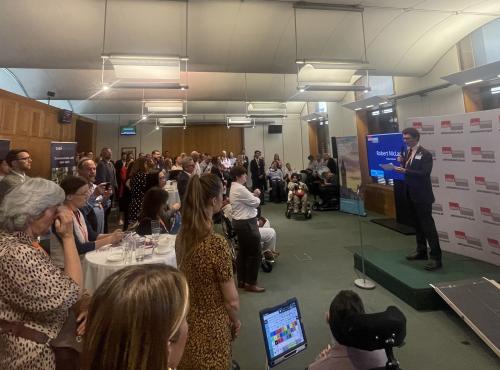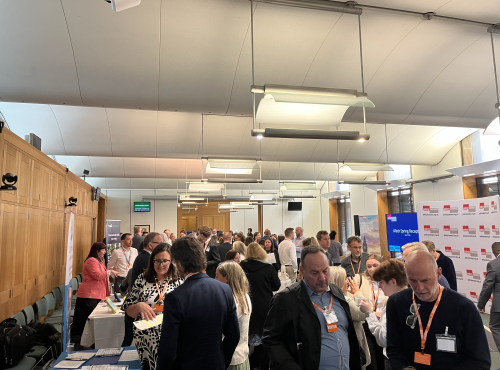Commission Launched: Assistive Technology and Employment
The APPGAT has launched a new commission into assistive technology and transitions into employment, Co-Chaired by Lilian Greenwood MP (Labour) and Lord Shinkwin (Conservative). The goal of this commission, generously sponsored by the Karten Network and the City Bridge Trust, is to ensure that our society takes advantage of technology to support disabled people into employment. We want to make employment accessible for all, with a particular focus on the issues that arise when disabled people transition from engaging with one government department to another. Inclusive and accessible practice benefits everyone, whether it’s applied to the design of a technology, the culture of a workplace, or the delivery of a government service.
2020 is a landmark year for disability legislation, marking 50 years since the Chronically Sick and Disabled Person’s Act, 25 years since the Disability Discrimination Act, and 10 years since the Equality Act. In line with this, the government has announced the development of a new National Strategy for Disabled People, and this provides the opportunity to make significant impact on government policy. At the APPGAT’s recent symposium on the National Strategy for Disabled People, Marcus Bell, Director of the Government’s Disability Unit, confirmed the strategy’s emphasis on the ‘fault-lines’ between government departments that affect disabled people as they progress through their lives.
The disability employment gap has been a significant priority for the government since the 2015 Conservative manifesto promised action to halve that gap, but a 2019 NAO report concluded that ‘it is disappointing that [the DWP] is not further ahead in knowing what works’ to help disabled people into employment. The disability employment agenda will become even more significant during the coming economic recovery: it is widely acknowledged that the recent (modest) narrowing of the employment gap was largely due to a tight labour market meaning that the prospect of a post-COVID-19 recession will threaten to undermine this progress. At the same time, social distancing requirements have led employers to adopt new ways of working which could be used as a catalyst to spark rapid adoption of accessible working practises and culture.
On 4 June, members of the commission’s steering group met to discuss the aims and structure of the report. We will shortly announce the next steps of the process, including ways for interested parties to share evidence with us. To stay up-to-date with the work of the commission, please sign up for our newsletter and follow us on Twitter @AT_APPG and @HealthAccess_PC.



